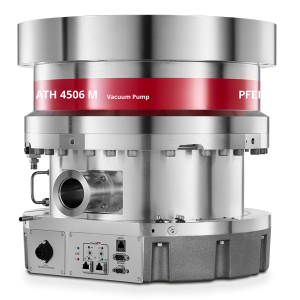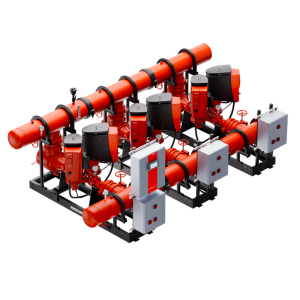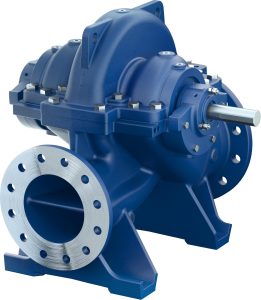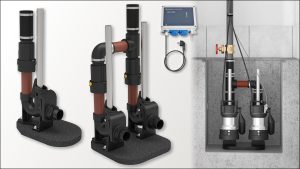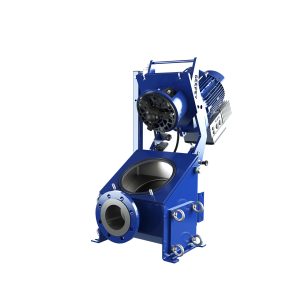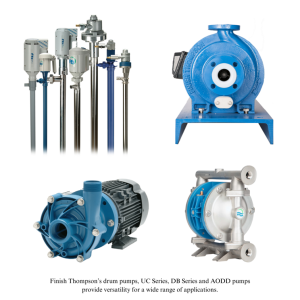Leybold Increases the Energy Efficiency of its Diffusion Pumps
The subject of energy efficiency of vacuum solutions plays an important role in all areas of application. Not least for this reason, the vacuum supplier Leybold from Cologne has continuously reduced the energy consumption of its product range in recent years.
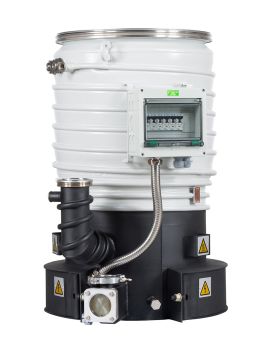
Diffusion Pump DIP 8000 (Image: Leybold)
Diffusion pumps do not have any moving parts - their principle of operation is based on steamed propellants, thus enabling extremely reliable and low-maintenance operation. In addition, they are robust and offer an excellent cost / performance ratio for high vacuum generation. For decades, these properties have made them the "workhorse" in industrial applications. Many suppliers considered this technology to be mature and accordingly the technical development came to a standstill.
The vacuum supplier Leybold has recognized the potential to raise this established technology to a contemporary level and has significantly reduced the energy consumption of the established DIP and newly developed DIJ diffusion pump series, with the aid of intelligent technologies and innovations. Leybold now provides a number of optimized models and accessories that are flexible and can be implemented worldwide into the relevant diffusion pump applications. The new DIJ family convinces with an optimized housing design, offering connections for both ANSI flange and ISO flange components as well as various electrical connection variants. The new five-stage nozzle system of the DIJ series has been especially improved for the pressure range from 10-2 to 10-3 mbar
Through design changes and modern control elements, the vacuum specialist was able to reduce the energy consumption of the diffusion pumps by an average of more than 30 percent - without sacrificing performance. In addition, there are further improvements in terms of serviceability and integration into the customers’ systems.
The lowering of the energy requirement has a positive effect in all areas of application. Even relatively low increases in efficiency of individual vacuum components can lead to improved energy balances, and noticeable reductions in operating costs for customers and users over the entire service life of the plants and equipment.
The greatest savings potential was achieved by selecting an improved heating system and adjusting it to produce the propellant steam. In addition, energy is saved by an optimized arrangement of the heating elements in the boiler room, the loss-free energy transmission and the thermal insulation.
In addition to these structural elements, the option of an integrated energy regulator reduces the power consumption of the diffusion pump. Their use is particularly useful because a high heating power does not lead automatically to a higher suction capacity. During a typical production cycle, the full heater power must only be used during the initial heating up of the pumps boiler room. In the following process phases, the necessary energy supply can be controlled exactly with the settings of the controllers.
For this, sensors in the boiler room measure the oil and heater temperature. As soon as the optimum is reached, the heating output is lowered. The power consumption is adapted to the requirements at the respective operating point by means of the energy regulator, operating manually or via a PLC. The measured pump data is stored inside the regulator. It can be easily integrated into the customer’s own process controller and can be exported and evaluated via an USB port.
Depending on the propellant fluid - mineral oil or silicone oil - the optimum target temperature in which the liquid develops its respective maximum performance is adjusted at the digital energy regulator. Compared to the energy consumption of unregulated standard pumps, energy savings of up to 50 percent are possible, depending on the process cycle.
A large number of users from a wide range of industrial and research areas are benefiting from the economic and ecological improvements of this established high vacuum pump: for example: vacuum coating, research and development, metallurgy, vacuum furnace construction, mechanical engineering or electron beam welding.
In this way, these innovative diffusion pumps from Leybold, developed by the vacuum engineer Wolfgang Gaede about 100 years ago, will continue to generate and maintain efficient and stable high-vacuum processes in the future.
Source: Leybold GmbH

